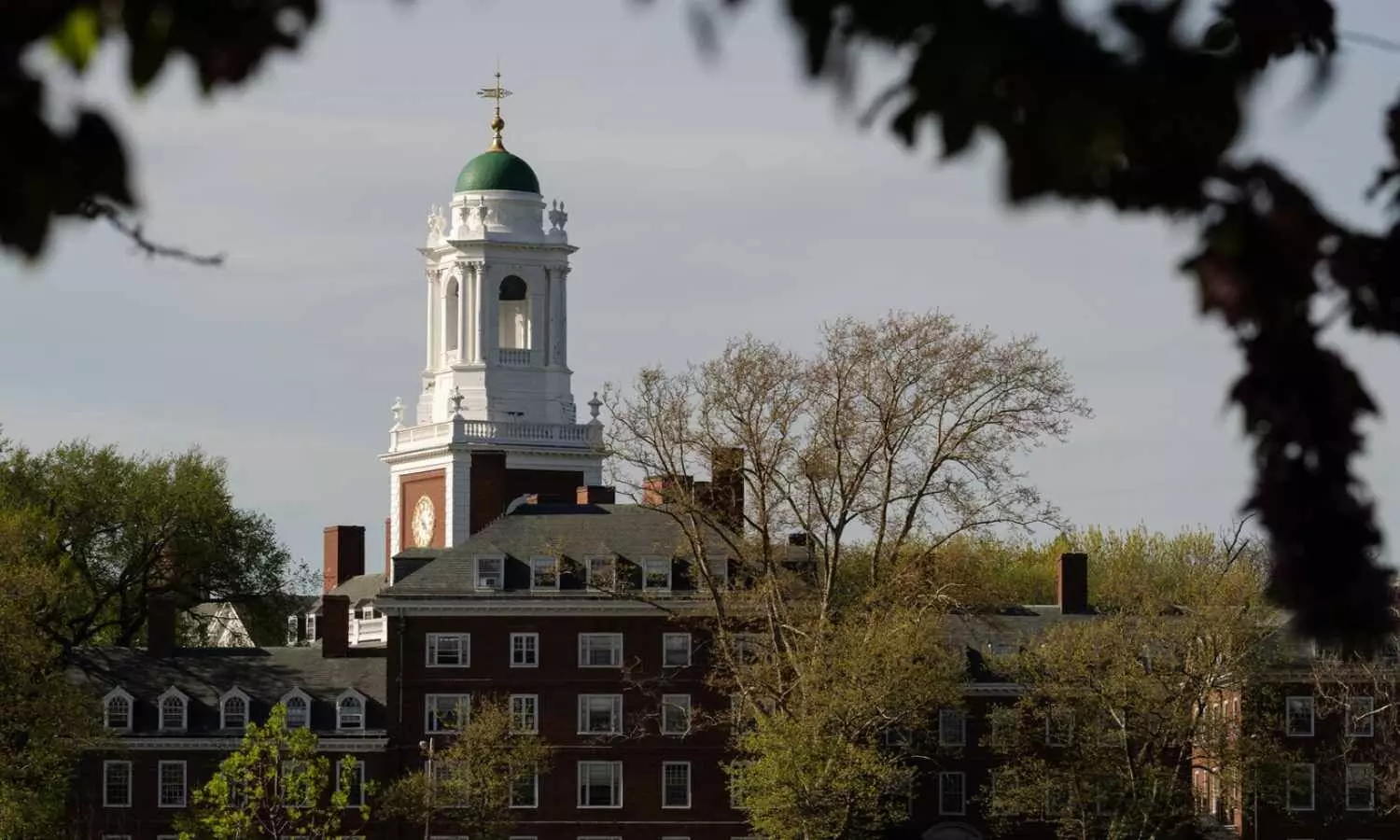"Dear Harvard...": Linda McMahon Cuts Off Research Funding in Blistering Letter
The Trump administration has blocked Harvard from receiving new federal research grants, with Education Secretary Linda McMahon issuing a scathing letter accusing the university of "disastrous mismanagement" and a betrayal of both academic principles and legal responsibilities.
Uni

Trump Administration Blocks Harvard from New Federal Research Grants in Scathing Rebuke
In a sharp escalation of tensions between the federal government and elite academic institutions, the Trump administration on Monday barred Harvard University from receiving any new federal research grants. The decision was delivered in a blistering three-page letter from Education Secretary Linda McMahon to Harvard President Alan M. Garber.
“This letter is to inform you that Harvard should no longer seek grants from the federal government, since none will be provided,” McMahon wrote, accusing the university of "disastrous mismanagement" and of having abandoned the core values of academia. The action marks the administration’s most direct and pointed move yet against one of the nation’s most prestigious universities.
McMahon's letter cited a series of grievances, including Harvard's refusal to comply with new federal oversight requirements. The university is currently challenging the government in court over the suspension of billions in research funding, arguing that the administration’s demands violate the Constitution and federal law.
Allegations of Academic and Ethical Failures
In the letter, McMahon accused Harvard of welcoming foreign students involved in "violent behaviour" and showing contempt for the United States. She also blasted the university for scrapping standardised testing, embracing grade inflation, and allegedly tolerating plagiarism, notably referencing media coverage surrounding Harvard’s former president.
She further criticised Harvard’s hiring decisions, including bringing on former mayors Bill de Blasio and Lori Lightfoot to teach leadership at the university's School of Public Health. "This is like hiring the captain of the Titanic to teach navigation," she wrote.
McMahon claimed that much of Harvard’s "hateful discrimination" was exposed last year through a congressional investigation led by Rep. Elise Stefanik.
Legal and Strategic Shift
This move signals a potential shift in the administration’s strategy. Rather than attempting to claw back previously awarded grants — efforts which have faced strong legal opposition — the administration is now preemptively blocking future funding. Legal experts suggest this approach could be more difficult to contest in court.
The administration had previously sent Harvard a list of demands, including screening professors for plagiarism, monitoring misconduct among foreign students, and appointing an external official to ensure political diversity in faculty hiring. Though the list was later described as mistakenly issued, the standoff has only intensified.
Harvard Responds
In a statement released Monday night, Harvard condemned the administration’s actions as “unprecedented and improper political interference.”
“The letter shows the administration doubling down on demands that would impose improper control over Harvard University and chill academic freedom nationwide,” the university said, calling the move illegal. Harvard reaffirmed its commitment to viewpoint diversity, antisemitism prevention, and legal compliance.
President Garber warned that the administration’s strategy could inflict “severe and long-lasting” damage on both the university and the broader research community.
A Clash Over Higher Education's Future
McMahon concluded her letter by stating, “At its best, a university should fulfill the highest ideals of our nation and enlighten the thousands of hopeful students who walk through its gates. But Harvard has betrayed this ideal.”
The conflict marks the latest flashpoint in a growing ideological divide over the role and governance of elite institutions. As the legal battle unfolds, the fate of Harvard’s future research funding — and the wider precedent this could set for federal oversight of higher education — remains uncertain.

